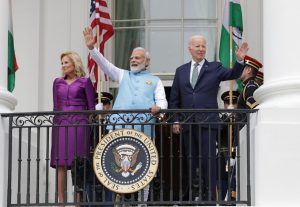In the midst of farmers’ protest against the farm laws, Prime Minister Narendra Modi on Saturday said that agriculture reforms, which were brought by his government six months ago, have already started to benefit farmers. PM Modi’s remarks came as the farmers’ protest entered its 24th day on Saturday.
“Agriculture reforms initiated six months back have started benefitting farmers,” PM Modi said briefly.
The Prime Minister was speaking at an Assocham convention where he highlighted reforms done in several sectors, from manufacturing to labour. He said India has emerged as the world’s preferred destination for investment during the last six years.
“There was a situation in the past when investors would question ‘why India’ (for investing in the country). With reforms (of past six years) and their effects, its proposition has changed to ‘why not India’,” PM Modi said.
The PM cited scrapping of 1,500 old and obsolete laws and farming new ones that in tune with the changing investment order as an example of his government’s outlook.
“Earlier investors cited high tax rates to say Why India but today (corporate) tax rates are so competitive that they say ‘why not India’,” Modi said.
Record foreign direct investment (FDI) and foreign portfolio investment (FPI) during the pandemic is a testimony to the faith that the world now has in India, he said.
Farmers’ protest day 24 live updates: Farmers continue sit-in, as mercury drops to season’s lowest
PM Modi and his cabinet ministers, from Defence Minister Rajnath Singh to Agriculture Minister Narendra Singh Tomar, have reiterated time and again that the farm laws, which were enacted in September during Monsoon Session of Parliament, are for the benefit of farmers.
Hundreds of farmers, majorly from Punjab and Haryana, have stayed put at several border points of Delhi in their protest against the agriculture laws, blocking the highways to the national capital for more than three weeks now. Farmers say the new laws will prompt the government to stop making direct crop purchases at minimum state-set prices, called minimum support price (MSP).
However, the Centre says the laws remove restrictions on marketing farm products and allow cultivators to engage with private companies to sell their crops.





